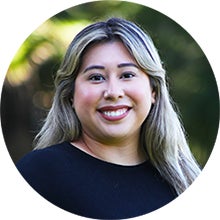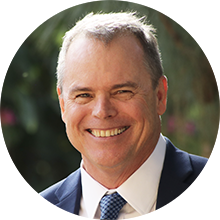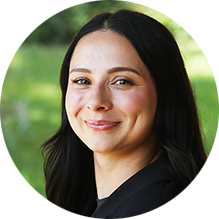
Advising & Student Services
Graduate Advising & Student Services
Advising and Student Services is committed to cultivating a meaningful academic experience among UCR's graduate business students. We achieve this goal through three channels: by assisting each student with developing and achieving key educational and professional goals; by fostering a sense of belonging and community connection; and by engaging with departments who are integral to the success of our students.
Meeting with your Advisor
Office Hours
Monday-Thursday: 9:00am - 5:00pm PST
Friday: 8:30am - 4:30pm PST
Summer hours: by appointment only.
Why See Your Advisor
Advisors help students track degree progress, but they also assist with much broader educational goals at AGSM. They facilitate enrollment in the required internship course (MGT 298i), oversee the recruitment and supervision of Teaching Assistants and Readers, and act as advisors for the Student Ambassadors and Student Association. We recommend that you build a positive relationship with your academic advisor, as they can be a very useful resource throughout your time at AGSM.
Remote Drop-In Hours
The Advising Office will not hold Drop-In hours during the summer, but we are available via one-on-one appointment. Please email your advisor to set up a time to meet virtually.
Appointments
If you are unable to meet with your advisor during drop-in hours, or would like an extended meeting time, you are welcome to make an appointment instead.
Meet with your Advisor
OFFICE HOURS:
Monday-Thursday:
9:00am-5:00pm PST
Friday:
8:30am-4:30pm PST
Lori Babigian
Director of Student Success
Student Advising, Student Clubs Advisor, Employer Relations
lori.babigian@ucr.edu
School of Business Building 311
Brigitte Hernandez
Student Success Advisor
MBA & PMBA Advisor
brigitte.hernandez@ucr.edu
School of Business Building 321
Alexis Jackson
Student Success Advisor
MPAc & MFin Advisor
alexis.jackson1@ucr.edu
School of Business Building 333
William Lu
Career Coach & Employer Relations Liaison
william.lu1@ucr.edu
School of Business Building 307
Tim Tyrell-Smith
Career Coach & Employer Relations Liaison
tim.tyrellsmith@ucr.edu
School of Business Building 331
Ashley Zamora
Career Coach & Employer Relations Liaison
ashley.r.zamora@ucr.edu
School of Business Building 327
Bryant Ma
Operations Analyst
Handshake & Canvas Administrator
bryant.ma@ucr.edu
School of Business Building 325
Frequently Asked Questions
-
MGT 298-I Internship Requirement for MBA Students
Q: What are the Internship Requirements for MGT 298-I Fieldwork in Management?
- Fieldwork minimum of 120 hours; course consultation. May be repeated for up to 8 units of credit toward the degree.
Q: How do I register for MGT 298-I?- Obtain an internship with a company/organization.
- Before you apply, please select MGT 298i course.
- Attach an offer letter/resume/position description to MGT 298-I Fieldwork in Management Form.
- Once the Career Development Center approves and signs your application, the Graduate Advising Office will be notified to enroll you.
Q: Can I repeat MGT 298-I multiple times?- MGT 298-I may be repeated for up 8 units of credit toward your degree.
Q: How do MBA students complete the MGT 298-I requirement?- MBA students are advised to complete an internship in an area/industry in which they are seeking professional experience. The fieldwork requirement is intended to provide students with hands-on experiential learning in the field of their choice.
Q: Does MGT 298-I have to be completed in the summer?- The MGT 298-I requirement can be completed during any quarter during your 1st or 2nd year. If an internship is completed in the summer, the course requirement will be applied to the following quarter. If not, the course requirement will be completed during the quarter you have your internship.
Q: How soon can international student begin their internship off campus or on campus?- International students can begin on-campus internships as soon as their first quarter begins. Students must wait one academic year for off-campus internships unless they have completed their undergraduate studies in the US. For more details, please visit the International Students Office page.
-
Student Account Holds
Q: I have a hold on my account and cannot register for classes. What do they mean, and what should I do?
- Prerequisite Error Hold: Student has not met the prerequisite for the class. Prerequisite courses are intended to provide students with foundational knowledge and skills necessary to succeed in later coursework. Prerequisites are strictly enforced, and no waivers will be granted.
- Time Conflict Hold: Two or more of your classes have conflicting times. Classes cannot overlap times. Please select another course that will work with your schedule.
- Department Approval Hold: Usually placed for Internship, Research, or Capstone courses. Contact your advisor to review this.
- Sexual Violence Hold: All first-year graduate students must complete the in-person and online Sexual Violence Education program. A hold will be placed on your account until you have met this requirement.
- Delinquent Account Hold: Student owes money. UCR Student Business Services are the only staff members who can remove this hold.
- Academic Probation Hold: Student cannot register for the next quarter until final grades of the current quarter are released. Student must increase GPA to a 3.0 or above in order to continue enrollment. Failure to get off of academic probation may result in a dismissal from UCR.
-
Curriculum Questions
Q: How many total units do I need to graduate, and how long will it take to complete my degree?
- MBA: Students are responsible for taking a total of 20 courses at the 200-level to make up 80 total quarter units.
- Full-time MBA: Students are required to complete two professional workshops (additional 4 units) and should be able to complete the coursework for the program in two academic years.
- Professional MBA: Students are required to complete one professional workshop (additional 2 units). Professional MBA students can complete program coursework in as little as two academic years or spread out their coursework over several years.
- MPAc: The Master of Professional Accountancy program requires completion of 48 units for graduation. Students should be able to complete the coursework for the program in one academic year. (Note: Students admitted into Track 2 of the MPAc program should be able to complete the coursework for the program in four quarters.)
- MFin: The Master of Finance program requires completion of 48 units for graduation. Students should be able to complete the coursework for the program in one academic year.
Q: What are the 400-level courses?
- MGT 402: Business Career Professional Development Workshop – required 2-unit workshop for full-time MBA students. Provides skill development and networking experience in person and via social media outlets. Offers a platform for practical implementation of effective job search strategies in various industries. Sets the stage for the development and clear articulation of a student’s ideas at internship and job interviews. Taken as S/NC; does not count towards 80 quarter units for MBA.
- MGT 403: Review of Quantitative Methods for Management – Reviews quantitative concepts and techniques related to the various functional areas of management. Topics include properties of functions, systems of equations and matrices (linear algebra), differentiation and integration (calculus), and basic probability concepts. Taken for a letter grade; does not count towards 80 quarter units for MBA.
- MGT 404: Communications, Leadership, Teams, and Ethics – required 2 unit workshop for all MBA students. Uses case discussions, presentations and theoretically-informed readings to develop communication, presentation and leadership skills; examines the principles of effective teamwork; and introduces representative ethical issues confronting managers. Taken as S/NC; does not count toward 80 quarter units for MBA.
Q: Do I have to take Management 403: Review of Quantitative Methods for Management?
The MBA Program has a program prerequisite (MGT 403), which should be taken the first quarter of residence. In order to waive this course requirement, students must complete an online quantitative review offered through Knewton/Alta, which utilizes adaptive learning technology to deliver a customized review to each student. We highly encourage students to complete the online review the summer before their first quarter, as it eliminates 4 units of coursework during the program. This saves students time and money during their first quarter. For more information, please email your advisors at agsmadvising@ucr.edu.
Q: What is a passing grade, and is there a certain GPA I must maintain?
- Only courses in which grades of “A, B, C or S” are received are counted toward graduate degree requirements. To continue in good standing and obtain an advanced degree, students must maintain a 3.0 overall GPA.
Q: Can I take a class as S/NC?
- Graduate students may take coursework on an S/NC basis only when the course description indicates that is an option. Graduate students may not use undergraduate or graduate courses taken on an S/NC basis to complete their Master’s or Ph.D. requirements, unless the course is only offered on an S/NC basis. Exceptions must be approved by the Dean of the Graduate Division.
Q: Does the MBA have a concentration requirement?
- The MBA does not have a concentration requirement, however, you have the opportunity to customize your curriculum in the area of your interest with the electives offered. It is recommended to take electives from more than one concentration area in order to be a well-rounded student of business.
Q: When is the last day to add/drop a class?
- The last day to add/drop a class without receiving a “W” grade is the Friday of week two in your program. Any changes to your schedule after that date must be completed with an Enrollment Adjustment Form and may require signatures from the Graduate Advisor and Dean of the Graduate Division.
Q: Is advising required before I register for classes?
- Advising is not required, but it is highly recommended.
Q: Do I have to follow a degree plan?
- The Track 1 MPAc & MFin programs have a set of classes that you take every quarter with your cohort so that you are guaranteed to complete the program in one academic year. The full-time MBA program has a plan to follow during the first year, but your second year has more options with the elective units.
Q: What’s the difference between the Directed Studies class and the Research for Thesis or Dissertation?
- The Directed Studies class (MGT 290) is intended to provide an opportunity for qualified students to undertake advanced work in a topic appropriate to the student’s special interests, which is not covered in a regularly offered course on campus. You must find a professor to work one-on-one with as an independent study. Course is repeatable.
- The Research for Thesis or Dissertation (MGT 299) is an option for the graduation requirement. Students may elect to write a thesis over taking a comprehensive examination in MGT 238.
-
Academic Student Employment (TAs and Readers)
Q. How can I become a Teaching Assistant?
- AGSM hires Teaching Assistants on an annual basis. Our recruiting process starts in early December, when we begin hosting information sessions for first year MBA and Ph.D. students interested in being a TA during their second year. MFIN and MPAc students may also attend if they are staying for a fourth quarter. Following several information sessions throughout winter, we release applications in the spring and make hiring decisions in June and July. In order to be eligible, students must be enrolled full-time and have at least a 3.0 GPA. Other requirements can be found on the graduate division website.
Please Note: TAs are usually granted 50% appointments (approximately 20 hours per week), which is the maximum student employment allowed by campus. Therefore, you will normally not be allowed to hold any other positions on campus while employed as a Teaching Assistant.
Q. How can I become a Reader?
- Unlike TAs, AGSM hires Readers on a quarterly basis. This means that you can be hired throughout the academic year. Applications for Reader positions will be available in August. Readers typically work in undergraduate business elective courses.
Q. What is the difference between Teaching Assistants and Readers?
- Teaching Assistants are instructors who oversee 1-2 discussion sections in an undergraduate class (BUS 010-109). They are expected to attend lectures, teach, and host regular office hours for students in the Undergraduate Programs Office (Olmsted 2340). They are compensated through a quarterly stipend, partial fee remission and graduate health insurance coverage.
- Readers are not instructors, but they do assist the professor with grading responsibilities and other tasks as needed. They are compensated through an hourly wage. Students are not typically employed as Teaching Assistants and Readers in the same quarter.
-
Financial Aid and Fellowships
Q. Who do I speak to if I have a question about paying for my tuition and fees?
- AGSM students pay for their tuition and fees using a combination of personal funding, loans and fellowships. If you have a question regarding your student loan, please contact the Financial Aid Office on campus. If your question is regarding your Fellowship, you can ask your Academic Advisor (Heather Anderson or Shannon Esdale). If your question is regarding payment, you can ask Student Business Services.
Q. How can I get additional funding while at AGSM?
- AGSM rarely awards scholarships after the point of admission, but we do offer opportunities for additional funding in the form of student employment. As a Teaching Assistant, students can earn over $12,000 per quarter in the form of stipends, fees and health insurance. Similarly, students can apply for a Reader position, which offers an hourly wage. For more information about this, please look under the “Academic Student Employment” section of the FAQ page.
- Alternatively, students can seek additional funding through employment outside of AGSM. UCR School of Business offers full-time Career Development Advisors to assist our students with securing professional employment. Learn more about the Career Development Center.
Q. What do I need to do to maintain my Fellowship?
- Each Fellowship awarded has specific stipulations attached. Please refer to your original offer letter to understand the academic and enrollment requirements tied to your Fellowship.






